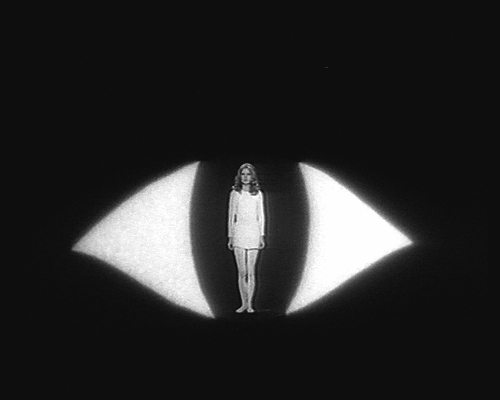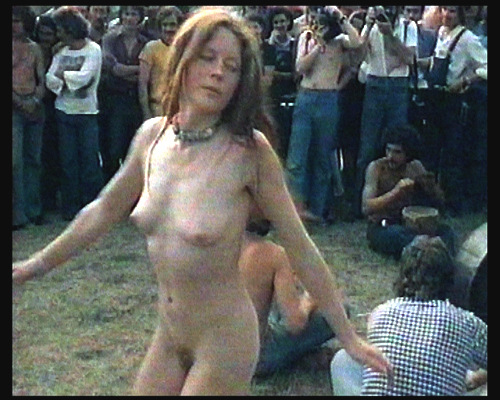10th(2008)
- Opening Film (7)
- New currents (29)
- Queer Rainbow (16)
- Girls on Film (20)
- Asian Short Film & Video Competition (19)
- Focus on PENG Xiaolian (5)
- Open Cinema (6)
- Female Bodies: Biopolitics and Body Politics (11)
- Fantastic Women\'s Cinema: Women in Paraxis (9)
- Curtain Call (11)
- 97-07 Women\'s Cinema in Korea (11)
- Documentary Ock Rang Award (1)
- Media Workshop for Women Migrants (1)
We Want Roses Too
Alina MARAZZI
- Italy
- 2007
- 84min
- 35mm
- color/black and white
- Animation, Documentary
SYNOPSIS
What happened between Italian women and Italian feminism before and after 1968? Titled after the feminist song ‘We Want Roses Too’ which has been popular among the western feminist community, this is a collage style documentary about the feminist movement history in Italy during the 60’s and 70’s. It shows the non-chronological representation of history by weaving images from TV commercials, animated films, footage films from the past, and various anatomical materials. This experimental documentary consists of three different parts; 1967’s Anita’s diary, 1975’s Teresa’s diary and 1975’s Valentina’s diary, where the writers read their own diaries. It juxtaposes the voices reading diaries and images bearing feminist consciousness of those days, which is a proper representation of history for the feminist motto; the Personal Is Political. It is well known that western feminists and women had fought against the laws restricting women’s birth control, divorce, and abortion. At the same time, these movements against the pressure and bans has been misconstrued to be the sexual liberation movement advocating drugs, free sex, and the pursuit of sexual pleasure. Anita and Teresa express their rejection of men who praise free sex and only pursue the sexual pleasure in their diaries. And also, as they encounter the sexist point of view, they feel distance from western male philosophers like Niche and Kierkegaard and the existentialism which was supported as the progressive philosophy in those days. Separating the feminist movement from the male-oriented progressivism in the 60-70’s, it declares these mix ups of liberation sexual freedom movement and the feminist movement should be a misunderstanding of history. It insists that the women’s issues of those days come over for us without having reached any solutions. We Want Roses Too asserts that both women and men have been defeated after 1977. And that’s why from now on feminism must start all over again. (KIM Sunah)
PROGRAM NOTE
What happened between Italian women and Italian feminism before and after 1968? Titled after the feminist song ‘We Want Roses Too’ which has been popular among the western feminist community, this is a collage style documentary about the feminist movement history in Italy during the 60’s and 70’s. It shows the non-chronological representation of history by weaving images from TV commercials, animated films, footage films from the past, and various anatomical materials. This experimental documentary consists of three different parts; 1967’s Anita’s diary, 1975’s Teresa’s diary and 1975’s Valentina’s diary, where the writers read their own diaries. It juxtaposes the voices reading diaries and images bearing feminist consciousness of those days, which is a proper representation of history for the feminist motto; the Personal Is Political. It is well known that western feminists and women had fought against the laws restricting women’s birth control, divorce, and abortion. At the same time, these movements against the pressure and bans has been misconstrued to be the sexual liberation movement advocating drugs, free sex, and the pursuit of sexual pleasure. Anita and Teresa express their rejection of men who praise free sex and only pursue the sexual pleasure in their diaries. And also, as they encounter the sexist point of view, they feel distance from western male philosophers like Niche and Kierkegaard and the existentialism which was supported as the progressive philosophy in those days. Separating the feminist movement from the male-oriented progressivism in the 60-70’s, it declares these mix ups of liberation sexual freedom movement and the feminist movement should be a misunderstanding of history. It insists that the women’s issues of those days come over for us without having reached any solutions. We Want Roses Too asserts that both women and men have been defeated after 1977. And that’s why from now on feminism must start all over again. (KIM Sunah)
Director
-

Alina MARAZZIAlina MARAZZI
Born in 1964 in Italy. She has worked as an assistant director for feature films such as The Power of the Past (2002) and video art projects. Her first and critically acclaimed film For One More Hour with You won Best Italian Documentary at the 2002 Torino Film Festival, and received Special Mentions by the Jury at the 2002 Locarno Film Festival.
Credit
- ProducerGaia GIANI
- Screenwriter Alina MARAZZI, Silvia BALLESTRA
- Cinematography Mario MASINI
- Art director Cristina SERESINI
- Editor Ilaria FRAIOLI
- Music Ronin
- Sound Benny ATRIA






